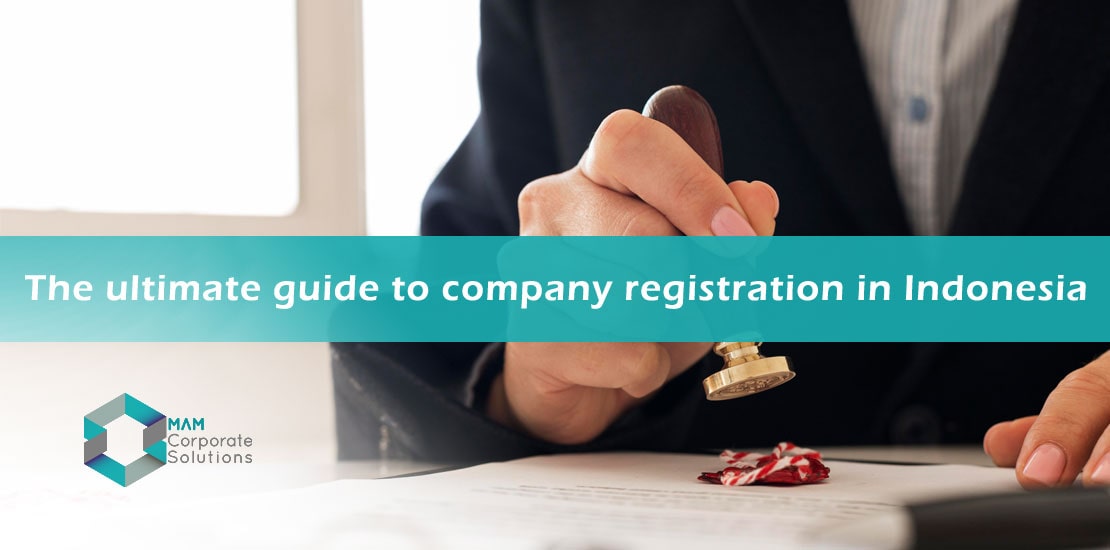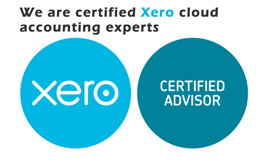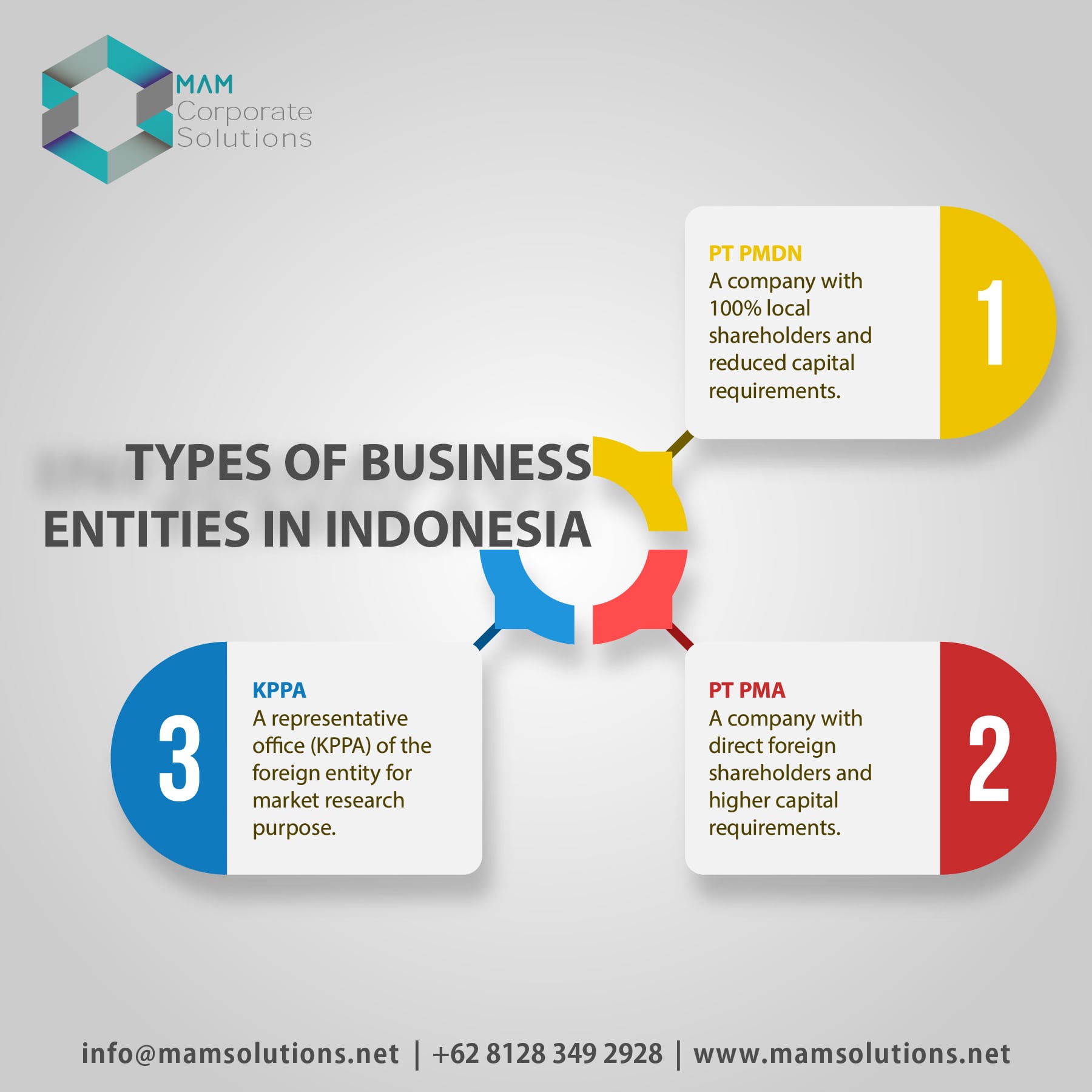
Company registration in Indonesia
Welcome to the ultimate guide to company registration in Indonesia, where we will provide you with all the information you need to establish your business in this vibrant and rapidly growing market. Whether you are a local entrepreneur or an international investor, understanding the process and requirements for company registration is crucial for success.
Indonesia, with its abundant natural resources, large consumer market, and strategic location in Southeast Asia, offers immense opportunities for business growth. However, navigating the legal and bureaucratic landscape can be daunting. That’s why we’re here to help simplify the process and equip you with the knowledge to start your journey with confidence.
In this comprehensive guide, we will cover everything from the different types of business entities you can choose, the step-by-step process of company registration, the necessary documents, and permits, to understanding the tax and employment regulations. We’ll also provide valuable insights and tips to help you optimize your business operations in Indonesia.
So, let’s dive in and demystify the company registration process in Indonesia, ensuring a smooth and successful start for your business venture.
Types of business entities in Indonesia
When it comes to setting up a company in Indonesia, there are several business entities to choose from. The most common types include:
- Limited Liability Company (or PT short for Perseroan Terbatas): A PT is the most popular choice for both local and foreign investors. It offers limited liability protection and allows for foreign ownership up to a certain percentage. There are two types of PT depending on the shareholding:
- Local Indonesian Company (or PT Penanaman Modal Dalam Negeri (PT PMDN)): A PT Local is a company with 100% local ownership. It does not allow foreign shareholding.
- Foreign-Owned Company (or PT Penanaman Model Asing (PT PMA)): A PT PMA is a company with up to 100% foreign ownership. It requires approval from the Indonesian Investment Coordinating Board (BKPM) and is subject to certain shareholding and business activity restrictions.
- Representative Office (RO) (or Kantor Perwakilan Perusahaan Asing (KPPA)): A KPPA is suitable for foreign companies looking to establish a presence in Indonesia without engaging in commercial activities. It is often used for market research and promotional purposes.
Each business entity has its own set of requirements and regulations. It’s essential to choose the one that aligns with your business goals and objectives. Now, let’s delve into the step-by-step process of company registration in Indonesia.
Requirements for company registration in Indonesia
Before starting the company registration process, there are certain requirements that you need to fulfill. These include:
- Minimum Share Capital: Depending on the type of business entity, you may need to meet a minimum share capital requirement. For example, a PT PMA requires a minimum of IDR 10 billion authorized share capital.
- Registered Office: You must have a registered office address in Indonesia where your company will be legally based. Many investors choose the virtual office for the company registration purpose and later switch to physical office once business has actual employees.
- Shareholders and Directors: You need to identify the shareholders and directors of your company. Minimum requirements for a PT are as follows:
- At least 2 shareholders
- At least one director
- At least one commissioner
- Tax Identification Number (NPWP): Company must obtain a Tax Identification Number (NPWP) from the Indonesian Tax Office. It is important to note that the company should also have at least one director with personal NPWP for the company to be able to do the tax compliance.
- Business Activities and Licenses: Determine the specific business activities your company will engage in and ensure you have the necessary licenses and permits.
Step-by-step guide to company registration in Indonesia
Now that you understand the requirements, let’s walk through the step-by-step process of company registration in Indonesia:
Choosing a business name and obtaining a certificate of name approval
The first step is to choose a unique and appropriate name for your company. The name should not infringe on any existing trademarks and should reflect the nature of your business. In addition to this, following rules apply when it comes to choosing a company name:
- The company name should be at least 3 words.
- The company name cannot use numbers, symbols or words like “company”, “corporation” or “PMA.”
- Immoral words are not allowed in the company name.
- Each company name will have a prefix of PT (in addition to the three words)
- The company name should not be associated with or be like the names of Government institutions or existing organizations and companies.
Once you have selected a name, you need to obtain a Certificate of Name Approval (SK Menkumham) from the Ministry of Law and Human Rights.
To obtain the certificate, you will need to apply along with the necessary documents, such as a copy of your identification card or passport and a brief description of your business activities. The process usually takes around one to two working days.
Preparing the necessary documents for company registration
After obtaining the Certificate of Name Approval, you need to prepare the necessary documents for company registration. These documents include:
- Notarial Deed: A Notarial Deed is a legal document prepared by a notary public, which includes details about the shareholders, directors, and other important information.
- Deed of Establishment: The Deed of Establishment is a document that officially establishes your company as a legal entity.
- Shareholders’ Meeting and Directors’ Appointment: You need to hold a shareholders’ meeting to approve the Articles of Association and appoint the directors of your company.
- Domicile Letter: A Domicile Letter proves that your company has a registered office address in Indonesia.
- Identification Documents: Copies of identification documents, such as passports or identification cards, for the shareholders and directors.
Filing the company registration application with the relevant authorities
Once you have prepared all the required documents, you can proceed to file the company registration application with the relevant authorities. The application is typically submitted to the Ministry of Law and Human Rights or the Investment Coordinating Board, depending on the type of business entity.
Along with the application, you will need to pay the registration fees and provide all the necessary supporting documents. The authorities will review your application and, if everything is in order, the company gets it new Online Single Submission (OSS) account and a Business Registration Number (NIB) is issued through OSS.
Obtaining the necessary licenses and permits for your business
After obtaining the Online Single Submission (OSS) account and Business Registration Number (NIB), you may need to obtain additional licenses and permits, depending on the nature of your business activities. These may include:
- Business License (SIUP): A Business License is required for certain business activities and sectors.
- Location Permit (IMB): If your business operates from a physical location, you may need to obtain a Location Permit.
- Other Industry-Specific Permits: Depending on your industry, you may need additional permits or certifications.
It’s important to ensure compliance with all the necessary licenses and permits to avoid any legal issues and penalties.
Tax registration number (NPWP) and compliance for Indonesian companies
As mentioned above, for a company to carry out tax compliance, in addition to a company having its Tax Registration Number (NPWP), at least one director of company must also have personal NPWP. Once this condition is met, as a registered company in Indonesia, you are required to fulfill your tax obligations. This includes:
- Monthly and Annual Tax Reporting: Indonesian companies are required to submit monthly and annual tax reports. Click here to learn more on how MAM Corporate Solutions can assist with regular compliance.
- Employee Taxes: If you have employees, you need to deduct and pay their income tax (PPH 21) and social security contributions (BPJS Health and Manpower).
It is advisable to seek the assistance of a tax consultant or accountant to ensure proper tax registration and compliance.
Conclusion and next steps for starting your business in Indonesia
Congratulations! You have now learned the essential steps and requirements for company registration in Indonesia. Starting a business in a foreign country can be challenging, but with the right knowledge and guidance, you can navigate the process successfully.
To summarize, make sure to choose the appropriate business entity, fulfill the necessary requirements, prepare the required documents, file the registration application, obtain the relevant licenses and permits, and ensure tax registration and compliance.
Remember, it’s always wise to seek professional assistance from local experts and consultants who can provide tailored advice based on your specific business needs. By following this ultimate guide, you are well on your way to establishing a successful business in Indonesia.
Good luck on your entrepreneurial journey, and may your new venture thrive in the dynamic Indonesian market!
How MAM Corporate Solutions can assist?
In conclusion, navigating the process of company registration in Indonesia requires careful attention to detail and adherence to legal requirements. At MAM Corporate Solutions, we understand the complexities involved and are here to guide you every step of the way. From providing initial advice on the most suitable business entity for your needs to facilitating the entire company incorporation process, our team ensures a smooth and efficient experience. Let us help you kickstart your business journey in Indonesia with confidence. Contact us today through our website’s contact form or fill in the form below to learn more and take the first step towards establishing your presence in this vibrant market.
Latest insights
If you want to meet and discuss, you can easily make an appointment here.
Thanks to the efforts of the MAM Corporate Solutions team, we can now sell our products under the banner of the incorporated company. We appreciate how the MAM Corporate Solutions’ team is responsive and informative. The team’s best asset is their consistent communication.



